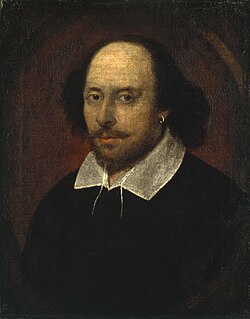William Shakespeare Quote
Swaggering in the coffee-houses and ruffling it in the streets were the men who had sailed with Frobisher and Drake and Sir Humphrey Gilbert, Hawkins, and Sir Richard Granville; had perhaps witnessed the heroic death of Sir Philip Sidney, at Zutphen; had served with Raleigh in Anjou, Picardy, Languedoc, in the Netherlands, in the Irish civil war; had taken part in the dispersion of the Spanish Armada, and in the bombardment of Cadiz; had filled their cups to the union of Scotland with England; had suffered shipwreck on the Barbary Coast, or had, by the fortune of war, felt the grip of the Spanish Inquisition; who could tell tales of the marvels seen in new-found America and the Indies, and, perhaps, like Captain John Smith, could mingle stories of the naive simplicity of the natives beyond the Atlantic, with charming narratives of the wars in Hungary, the beauties of the seraglio of the Grand Turk, and the barbaric pomp of the Khan of Tartary.
Swaggering in the coffee-houses and ruffling it in the streets were the men who had sailed with Frobisher and Drake and Sir Humphrey Gilbert, Hawkins, and Sir Richard Granville; had perhaps witnessed the heroic death of Sir Philip Sidney, at Zutphen; had served with Raleigh in Anjou, Picardy, Languedoc, in the Netherlands, in the Irish civil war; had taken part in the dispersion of the Spanish Armada, and in the bombardment of Cadiz; had filled their cups to the union of Scotland with England; had suffered shipwreck on the Barbary Coast, or had, by the fortune of war, felt the grip of the Spanish Inquisition; who could tell tales of the marvels seen in new-found America and the Indies, and, perhaps, like Captain John Smith, could mingle stories of the naive simplicity of the natives beyond the Atlantic, with charming narratives of the wars in Hungary, the beauties of the seraglio of the Grand Turk, and the barbaric pomp of the Khan of Tartary.
Related Quotes
About William Shakespeare
Shakespeare was born and raised in Stratford-upon-Avon, Warwickshire. At the age of 18, he married Anne Hathaway, with whom he had three children: Susanna, and twins Hamnet and Judith. Sometime between 1585 and 1592 he began a successful career in London as an actor, writer, and part-owner ("sharer") of a playing company called the Lord Chamberlain's Men, later known as the King's Men after the ascension of King James VI of Scotland to the English throne. At age 49 (around 1613) he appears to have retired to Stratford, where he died three years later. Few records of Shakespeare's private life survive; this has stimulated considerable speculation about such matters as his physical appearance, his sexuality, his religious beliefs and even certain fringe theories as to whether the works attributed to him were written by others.
Shakespeare produced most of his known works between 1589 and 1613. His early plays were primarily comedies and histories and are regarded as some of the best works produced in these genres. He then wrote mainly tragedies until 1608, among them Hamlet, Othello, King Lear and Macbeth, all considered to be among the finest works in English. In the last phase of his life he wrote tragicomedies (also known as romances) such as The Winter's Tale and The Tempest, and collaborated with other playwrights.
Many of Shakespeare's plays were published in editions of varying quality and accuracy during his lifetime. However, in 1623 John Heminges and Henry Condell, two fellow actors and friends of Shakespeare's, published a more definitive text known as the First Folio, a posthumous collected edition of Shakespeare's dramatic works that includes 36 of his plays. Its Preface includes a prescient poem by Ben Jonson, a former rival of Shakespeare, who hailed Shakespeare with the now famous epithet: "not of an age, but for all time".
